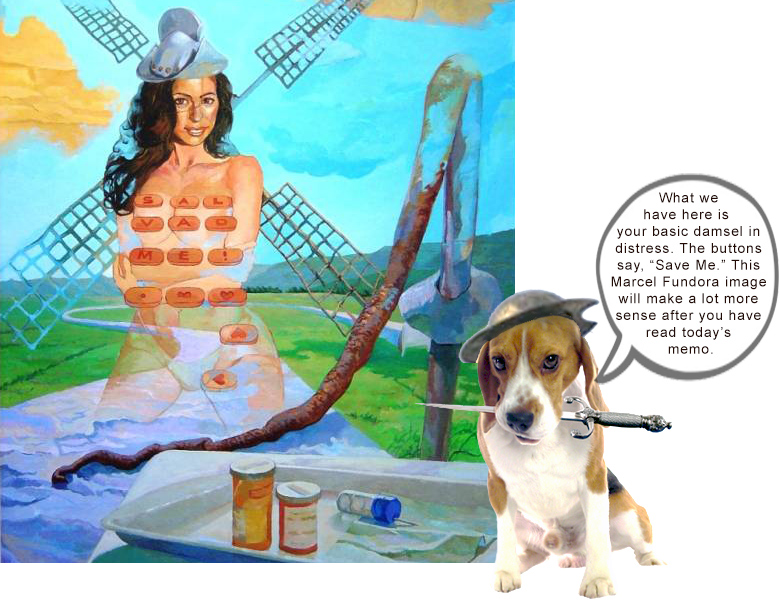Ad writers hear it every day, whistling toward them like a bullet: “We need more traffic, that’s what we need; more sales opportunities!”
I spent the early part of my radio career stepping up to the plate and knocking that fastball out of the park. If your back was against the wall, I was the man to call.
I was like Coca-Cola, baby, I was everywhere.
It was the early 1980s.
My employer required me to wear a tie, so I hung one around my neck like a scarf. And to underscore my scruffy renegade look, I refused to tie my shoes. Everywhere I went, people would tell me, “Your shoes are untied,” and I would reply with a smile, “Yeah, I know.”
I looked like a young drug dealer, and in a way, I was.
I sold instant gratification advertising. “You want a crowd? Crowds cost money. How big a crowd do you want?”
It’s actually pretty easy to attract a worked-up crowd. Do you want to know how to do it?
These are the ingredients you must have at hand
To Make Big Things Happen Fast:
1. Urgency – There has to be a shortage of time or a shortage of quantity. The rule to remember is this: “No shortage, no urgency.” The best shortage is to have a limited number of a highly desirable item at a remarkable price. This is the time-tested formula that causes people to camp out on the sidewalk in front of Wal-Mart before the doors open the day after Thanksgiving.
If the number of 82-inch TVs available for $999 is too few, people will say, “I don’t have a chance,” and stay home. But if the number is too many, no one will get excited because “there’s enough to go around.” So you definitely need to name a number. “While supplies last,” is a line that only a beginner would write. The customer hears that and thinks, “They only had one of those and they sold it before this radio ad ever hit the airwaves.” Result: no response.
2. Credible Desperation – If you scream, “400 Toyotas MUST be sold this weekend! No reasonable offer refused!” you’ve got no credibility. The listener thinks, “WHY do you have to sell 400? What happens if you don’t? And what you consider to be ‘a reasonable offer’ is probably a lot more money than what I consider to be a reasonable offer, so I’m going to pass. I’ve got better things to do this weekend than haggle with a jackass car dealer.”
Desperation loses credibility as time passes. That’s why these ads work less and less well the longer you use them.
“Lost our lease, everything must go,” is another line that only a beginner would write. Specifics are more believable than generalities.
Do you want to make your desperation credible? Do you want stuff to fly out the door? Say, “We’ve been thrown out! Our landlord rented our space to someone else and a dump truck will be here at 8AM on Monday, January 7th to haul away everything we leave behind….”
3. Specifics – “…so we’re liquidating the entire inventory, every item in every department. We’re selling the showcases, the light fixtures and the cash registers. And if you can figure out how to get the wallpaper off the wall, we’ll sell you that, too. Call your friend with a pickup truck because you’re going to leave here with an ecstatic truckload of once-in-a-lifetime bargains. An $800 kayak is $179. Perfume that sells for $200 a bottle is yours for just $20. Diamond pendants worth a thousand dollars are just $129. A dozen doughnuts, made fresh while you wait, are just ONE DOLLAR and you can eat them while you’re shopping. So cancel what you had planned and get here as quick as you can.”
4. Repetition – Nothing says “urgent news” like an ad that runs twice an hour for 72 hours. If a radio station will let you air only one ad an hour, then make sure it’s a 60-second ad. If a station has a policy that allows you to air only 3 ads every 4 hours, then buy a different station. Whatever you do, don’t air your supposedly “BIG” announcement with too little repetition. Did you read the part where I tried to make it clear that one spot per hour, 24 hours a day, was a MINIMUM schedule? I meant that.
Month after month I sold urgent, high-impact schedules to business owners who licked their lips as they shook my hand.
It wasn’t long before I was visiting twitching, crowd-addicted business owners who looked at me with hard, glittering eyes and a facial tic as they said, “Just like last time, but even better, okay? Even better. That’s what I want. Do whatever you have to do, just bring the people in.”
High-frequency radio schedules and high-impact ad copy are the opioids of advertising. They’ll take away your pain, but when you come down from your high, you’re just a dark-eyed addict in an empty room. So you call the guy with the untied shoes again. But each schedule works a little less well than the one before until, finally, you have destroyed the health of your business.
Do I still write high-impact ads and air them round-the-clock? Of course I do. Opioids exist for a reason. When the pain of an unforeseen business catastrophe is overwhelming and you have no option but to blow the trumpet and bang the drum, you do what you have to do and then deal with the ravages of addiction when it’s over.
But it’s a long and painful recovery. And the thing you want more than life itself is to blow that trumpet and bang that drum one more time.
So now you know How to Make Big Things Happen Fast.
You just have to decide whether or not you want to.
Roy H. Williams

A friend is in town for the holidays
and he said he might pop into
the rabbit hole. – Indy
